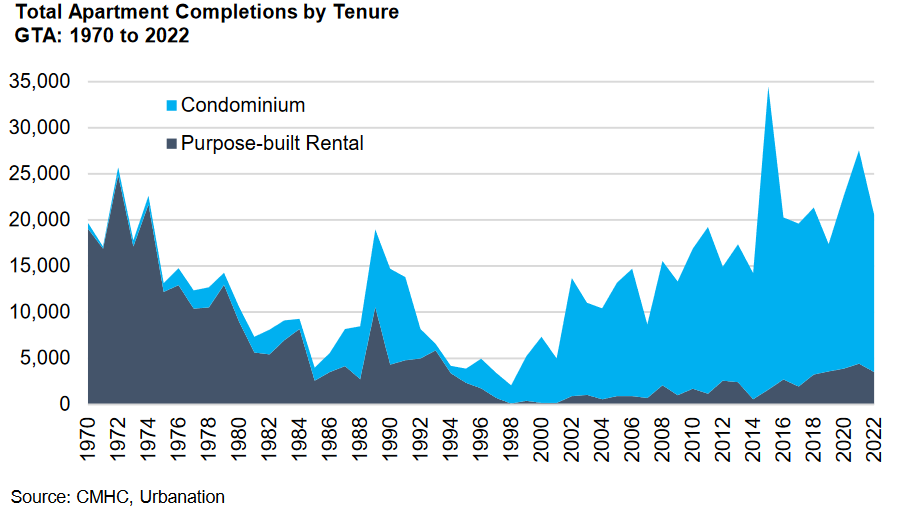#08 - So You Want To Be A Real Estate Developer?
What development is like; A great job opportunity in TO
In This Issue
What Development Is Like
Lots of people like the idea of being a real estate developer. But it’s hard to get a good sense of what this job is actually like until you’ve spent a few years working in a development company.
To hear the way developers are described by the media and in politics, you would think we’re all fat cats, spending our time strutting onto active construction sites wearing pinstripe suits and dress shoes, cutting backroom deals with politicians, and driving around town in Lamborghinis (…okay okay, there are a few guys like that). In reality, making money in real estate is kind of… hard. There is a lot of risk involved, the process is very unpredictable, and many people — neighbours, resident associations, local government, politicians — are actively trying to delay, prevent, or otherwise influence your project. The path to completion is never smooth, never straight, and lots of people go bankrupt trying it out.
There’s a wonderfully evocative metaphor that I once heard: real estate development is like running a wheelbarrow race, except that your wheelbarrow is full of frogs. The frogs are constantly jumping out of the wheelbarrow, so every few feet you need to set it down, gather up the frogs, and put them back inside. Then you pick up the wheelbarrow and run like hell until the frogs start jumping out again.
This resonates with me. It really captures the feeling of managing a development project: every day you take two steps forward, one step back. If you aren’t resilient to obstacles and setbacks, this may not be the business for you.
A Rare Job Opportunity
This week Tenblock posted that they are hiring a new development person for their team. You can read the job description here. It hadn’t previously occurred to me to write about job postings here, but I’m guessing that for most job seekers, it’s difficult to differentiate between available opportunities. I figure it might be helpful for me to offer some thoughts on roles that open up, assuming I have something useful to say.
Bottom line up front: This is the coolest development opportunity I’ve seen posted in Toronto recently — perhaps since the job with Tricon that brought me here from Washington DC! Let me explain why I think so.
For better or worse, Toronto is a condo town. Rental deliveries used to be very high in the city, peaking at well over 20,000 units per year in the late 1960s and early 1970s.

In the wake of new rent control regulations and changes to the federal tax code in the mid-1970s, completions plummeted and were only gradually replaced by condominium projects starting in the 1980’s. Since that time, condominiums have dominated the market. For almost 50 years, very few Class-A rental buildings have been created in Toronto. This means that very few Class-A rental professionals have been created in Toronto.
I previously wrote a bit about how different the incentives are in rental development versus condo. Personally, I prefer to work in rental housing because the incentives between builder, investor, property manager, and residents are much more aligned than in the condo world. Thankfully, there are several companies who are taking Toronto rental housing to the next level. Tricon Residential and Fitzrovia are currently leading the pack, each with several high quality buildings now operating. There are other players who are active in the space at various scales and within different market segments, like GWL, Woodbourne, and Oben Group.
Tenblock is in the next generation of firms that will be bringing new rental housing to Toronto. Whereas Tricon and Fitzrovia are massive, vertically-integrated firms with a pure mandate to build rental, Tenblock is still relatively small and can make business decisions about condo vs. rental on a case-by-case basis. It is owned by a real estate family who were very active developers in the mid-20th Century, and who built a number of large apartment towers around Toronto. This family started Tenblock as a platform to explore redevelopment and intensification opportunities within their existing portfolio; many sites were “towers in the park”, with lots of open space where they could add more housing. Because this group takes a long-term view for their investments, they are motivated to pursue rental when it makes sense.
Because Tenblock’s pipeline is built around the family’s existing portfolio, they enjoy a few advantages over other companies: very low land basis, a large pipeline of future projects, and the ability to be patient and selective about how they spend their time and who they spend it with. They haven’t grown as quickly as some other development companies in Toronto, and still have the character of a “boutique” firm, despite the size and complexity of their projects. Over the last several years, they have developed very strong expertise in planning/pre-development, and have differentiated themselves as being particularly thoughtful, collaborative, and socially-minded, with a strong emphasis on sustainability and community development.
They recently received zoning approval for four of their sites: 25 St Mary, 145 St George, 48 Grenoble, and 5 Capri. With a bunch of new approvals in hand, Tenblock must embark on the next phase of its growth: bringing its projects through design development, construction, and occupancy. Exciting stuff! But there’s a rub: this is a new type of work for the company, and they need to do it in a market that doesn’t have many professionals with deep experience in new rental development and operations (to say nothing of people who can easily pivot between condo and rental, depending on the project).
For that reason, I think it might be difficult for Tenblock to fill this role with an experienced professional. If that’s the case, they may need to bring on someone a little more junior whom they can train up.
BUT! The good news is that for the right person, this could be a life- and career-changing position.
The person they are looking to hire will have a rare and challenging mandate: carry thousands of apartments from zoning approval, through construction and to occupancy. Because the firm is small and closely held, this is not the kind of job where you can rely on a huge internal team or on consultants to advance a project for you and then hand it over to a construction manager. This is true capital-D Developer stuff, where you will be responsible for project execution at a large scale, working on projects where you will likely be accountable for the outcomes of your decisions several years later.
As stated in the job description, for an ambitious person who already has some technical experience, this could be a dream job. Every role is what you make of it, of course, but the successful candidate may come out the other end with experience that no one else in the city has.
Business Updates
March was a good month for Imprint. We got one more property under contract at one of our land assemblies, and Imprint was formally engaged to help reposition a distressed development site in the City of Toronto.
One thing I’ll share this month, which is a little funny/embarrassing but probably useful for someone starting a new business:
For the first few months after I started Imprint, I didn’t have much revenue and my expenses were very light. I considered getting accounting software to help with bookkeeping and end of year financials, but figured it wasn’t worth the expense until I had more transactions to track. Instead I maintained my books and created financials myself using excel. As business picked up, this became tiresome. I had lots of expenses to track, HST returns to manage, bank accounts to reconcile. It got to be so much work that I began shopping around for a CPA to do light bookkeeping and financials. I asked owners of other development firms, my friends, and my tax prep firm for referrals. I spent a bunch of hours interviewing people. But everyone I spoke to declined to take me on as a client! Each and every one of them said that their services would be more than I needed.
So what did I do instead? I got a Quickbooks subscription.
And I’ve got to say, I am embarrassed that I didn’t do this on the very first day after starting my business. It doesn’t cost that much and has already saved me many hours of work, particularly during tax season. People sometimes joke about QB for being basic or unsophisticated. I would love to have a business so big and complex that QB can’t handle it, but for now it can do everything I need it to. The only limitation I can foresee is the number of accounts available (capped at 250); if I were to start processing my own construction draws this might become a problem.
Regardless of which program an aspiring entrepreneur chooses to use, don’t be like me and delay the purchase. The time you save will be more than worth the cost.
That’s a wrap for this month.
I write this newsletter because I like to connect with smart people who are doing interesting things. Feel free to reach out by replying to this email.
Thank you for reading, and have a great April.



